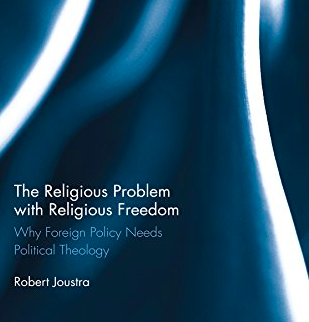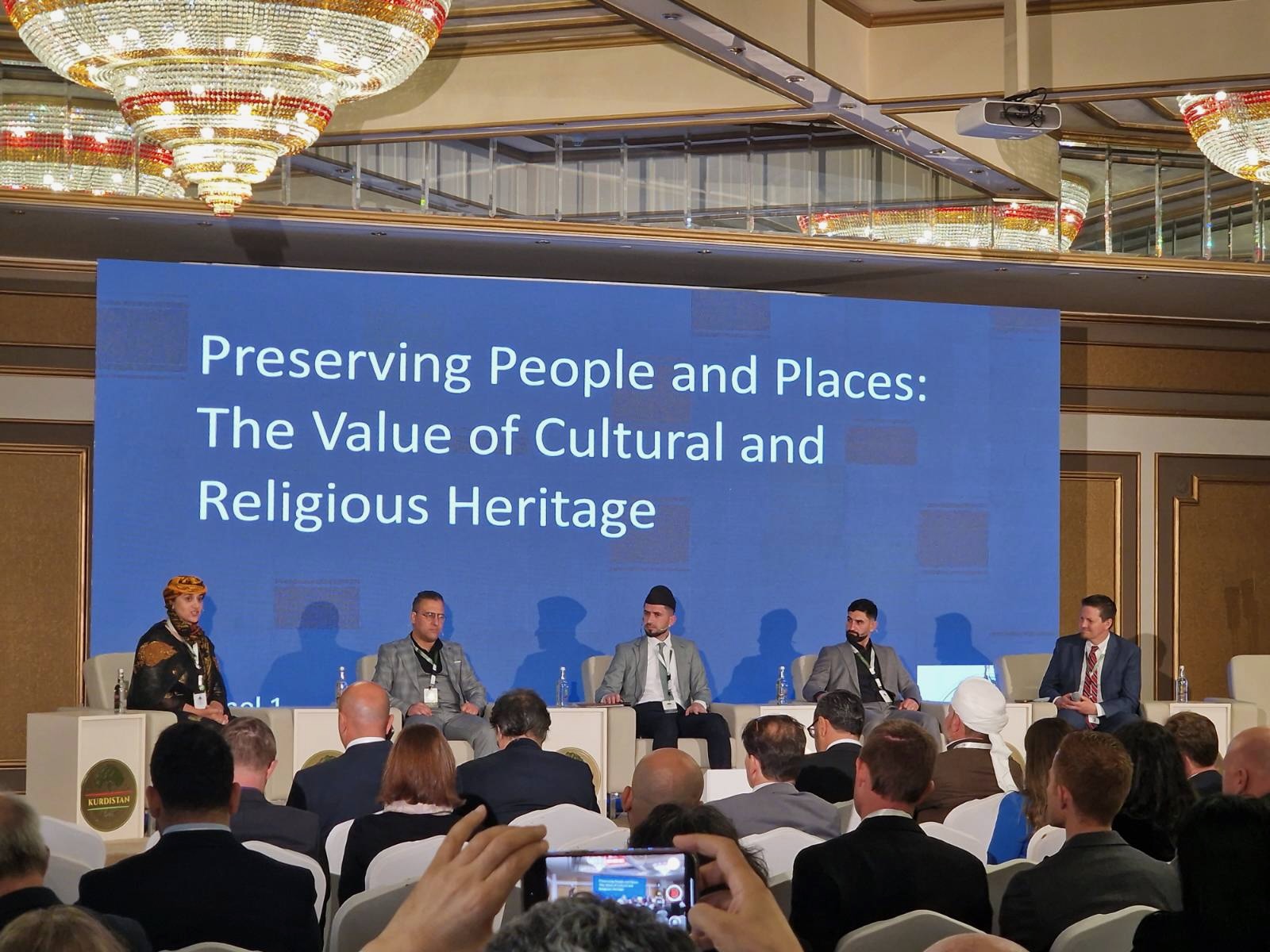
In his 2018 book, The Religious Problem with Religious Freedom: Why International Theory Needs Political Theology, Robert Joustra, Associate Professor of Politics & International Studies at Redeemer University, begins with a brief account of the religious freedom debate in Canada. He notes two major strains of thought regarding the relation between religion and the state: the first is Laicite, which views church and state as essentially antagonistic entities, with the state requiring the subjugation of the church; and the second is Judeo-Christian Secularism, which deems the two as distinct entities in which the political order grows out of Judeo-Christian values and principles that can be further divided into inclusive and exclusive, depending on how overtly the state adheres to Judeo-Christian principles. Joustra then introduces the idea of political theology, which he describes as the way that religious actors see state action and the qualities that constitute a legitimate political order.
Joustra introduces these ideas to show the limitations of each in the church-state dichotomy. He ultimately develops a strain of political theology, which he calls Principled Secularism, in which the state maintains an appropriate distance from religion and avoids defining too specifically what qualifies as religious. At the same time, the state rigorously defines what is secular and remains within clearly defined boundaries, thereby avoiding interference in religious operations. The balancing of the secular and the religious allows religious actors to be politically active as well. Principled Secularism, however, also requires the state to abstain from any profession of religious principles, and indeed from making any type of philosophic professions whatsoever. The idea of Principled Secularism constitutes his primary opposition to Judeo-Christian Secularism: though it allows the free practice of any religion, its profession of the importance or influence of Judeo-Christian culture over others violates Principled Secularism.
While Joustra gives a thorough and commendable assessment of the debate in Canada, there are several instances in which his theory seems impractical or vague. For example, in a liberal democracy such as the United States, which was heavily influenced by Judeo-Christian culture and values, should the state deny the historical significance of these intertwining cultural values for the sake of Principled Secularism? His critique of Judeo-Christian Secularism suggests that the answer is yes. In the same vein, he argues that a state cannot have a philosophic adherence to any particular tradition or culture and that it should not mandate how a group justifies allegiance to the political order. The suggestion that a nation should intentionally obscure its historical or cultural origins seems at least dangerous, if not outright damaging.
While I presume that Joustra does not want countries to obscure or rewrite their histories, his warnings against any government statements regarding religion and philosophy inevitably lead us to ask, what do we do when certain philosophies or religions are historically more influential than others? He does not fully answer this question in his book. We can be assured at least that he is not suggesting historical revision, as he notes that most Canadian national holidays are based upon Judeo-Christian religious holidays and that for historical and practical reasons, Canada should not alter these nationally celebrated holidays merely to distance itself from that history. But how should Canada then determine which religious days or institutions are well-established enough historically to be justified, and which are not? At what point is a holiday or institution established enough historically that the government is justified in leaving it as an established national holiday? This is not entirely clear in his presentation of Principled Secularism.
There are two further potential issues with Joustra’s work. First, there seems to be a tension between allowing religious actors to make political arguments while refusing the government the ability to make decisions based on religion or philosophy. For example, if a religious actor is permitted to be politically active and to justify this activity in religious terms, what is to prevent that actor from becoming influential enough that the government begins to take religiously motivated action? If political parties are allowed to be explicitly religious in origin and platform, what is to prevent such parties from enacting explicitly religious legislation? Obviously, refusing the political rights of religious actors is not the solution to this problem. However, we are again inevitably led to another question that Joustra does not fully answer in this book.
The second question I believe Joustra’s book raises pertains to his definition of secularism. He argues that properly understood, the secular is not the inverse of the religious but that it is the proper response of the state to diversity. This also leads us to ask, what happens in a homogenous society? This question may not be practically relevant to the United States or Canada, which are undeniably diverse in almost every sense of the word, but it would be a practical consideration for other nations in which there may be a single, dominant religious denomination. How are these countries to understand what is secular for them? Are they then permitted to be explicitly religious? This question ultimately stems from another: Is Joustra’s theory based on universal principles, or on facts relating to the modern world? In other words, is it primarily philosophical or practical? Answering that question may enable us to develop an answer. But barring that clarification, we are left with a complication based upon his proposed political theology of Principled Secularism.
Despite these questions and complications, Joustra’s book certainly iluminates much about religion and religious ideas within secular society. He gives a thorough and academic assessment of the history of religion and secularism in Canada and endeavors to develop a theory that is intriguing, well-defended, and which both protects and embraces the most important of human rights: freedom of religion. What I have expressed here about his work is in no way a repudiation of his thought, his book, or his high goal. Joustra’s staunch defense of the Canadian Office of Religious Liberty is admirable, but there are areas where his book could use greater detail or clarification to provide answers to derivative questions about the interplay of secularism and religion in highly pluralistic societies, which would further strengthen his arguments.
Eric Patterson, Ph.D. serves as Executive Vice President of the Religious Freedom Institute. Patterson is scholar-at-large and past dean of the Robertson School of Government at Regent University and a Research Fellow at Georgetown University’s Berkley Center for Religion, Peace & World Affairs, where he previously served full-time.
John Wilcox is an intern at the Religious Freedom Institute. He is a senior at the University of Dallas, where he is studying political theory.
THE RFI BLOG

Oral Argument in Charter School Case Highlights Unconstitutional Motives Behind OK Attorney General’s Establishment Clause Claim

Largest Longitudinal Study of Human Flourishing Ever Shows Religion’s Importance

Keys To Human Flourishing: Faith And Relationships Outweigh Wealth

RFI Champions Religious Freedom at Kurdistan’s First National Prayer Breakfast

RFI’s Ismail Royer Speaks at Supreme Court Rally for Religious Parents Seeking Opt-Out
CORNERSTONE FORUM

Reaffirming Religious Freedom: Bridging U.S. Advocacy and Iraq’s Constitutional Framework

Political Polarization, Same-Sex Marriage and Religious Liberty

Bridging the Gap Between International Efforts and Local Realities: Advancing Religious Freedom in the MENA Region

Challenges to Religious Freedom in Iraq and the Critical Need for Action

